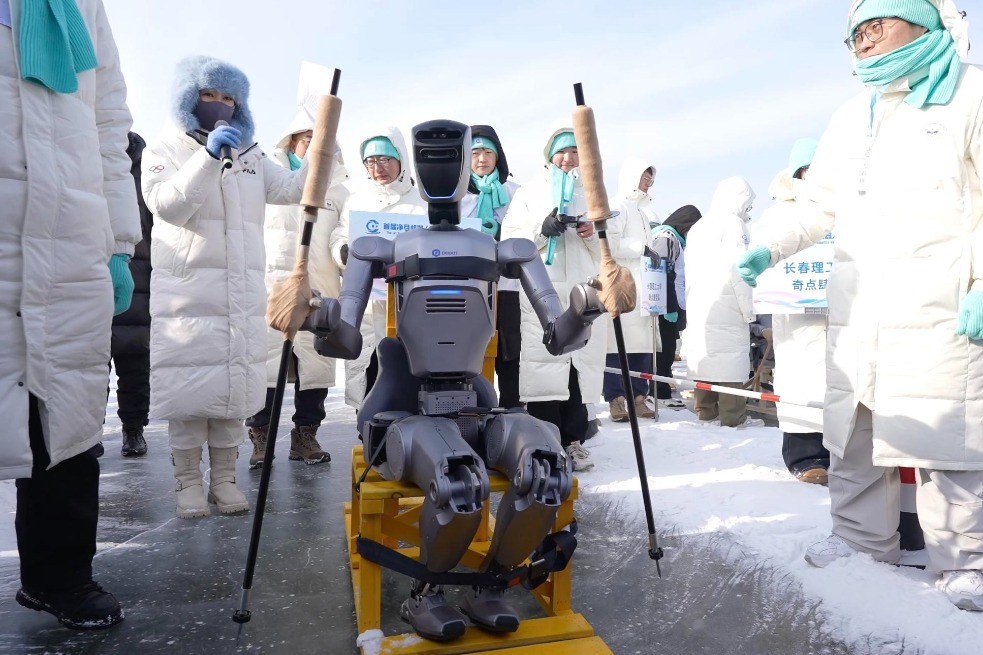Putting Greenland on the sporting map
Local officials make bid to join CONCACAF, as soccer-mad territory looks to compete on the international stage

NUUK — Despite being covered by ice and largely desolate, soccer is still king in Greenland, where the players want to compete with other nations. However, it remains a pipe dream until the Danish autonomous territory joins a continental federation.
Until now, soccer players in Greenland have mostly played among themselves, and the national team — made up of amateurs — has relied on the goodwill of opponents to organize matches.
The territory's soccer association, KAK, announced on May 28 that it had applied to join the Confederation of North, Central American and Caribbean Association Football (CONCACAF), since it was unable to join the European soccer association UEFA.
UEFA statutes stipulate that membership can only be granted to federations "based in a country which is recognized as an independent state by the majority of members of the United Nations".
"It's the only place on Earth right now that's not member of any soccer confederation," Greenland coach Morten Rutkjaer told reporters.
Nevertheless, soccer — and in particular the English Premier League — is very popular for the 57,000 or so inhabitants of the world's largest island, which covers an area of two million square kilometers.
In the streets of Greenland's towns and cities, many children play soccer in the summer, and, as soon as the weather permits, the pitches fill up — with one of the most eye-catching venues located in the northern village of Uummannaq, which lies in the shadow of nearby icebergs.
'The biggest sport'
"It's the biggest sport in Greenland," Ungaaq Abelsen, secretary-general of KAK, said, adding that it is estimated that more than 10 percent of the population play.
"If we get into, for example, CONCACAF or FIFA in general, then we can play in official tournaments and have a lot more matches against others," he added, explaining what counts is being able to join FIFA, which requires you to belong to a regional confederation.
Although it was not involved in the bid, the Danish Football Association (DBU)"strongly" supports it.
"We are getting closer to our goal, to play more international matches and to show that Greenland is among those countries who can play football," Greenland captain Patrick Frederiksen said.
The 30-year-old has played just 10 friendlies since his first cap in 2017, most recently on June 1 against Turkmenistan, a game which Greenland lost 5-0.
Like his teammates, Frederiksen is not a professional.
He works at a kindergarten and can only train after hours. For away tournaments, such as the Island Games in Guernsey in 2023, he has to take time off work.
For the federation, the aim is not to win the World Cup — not yet, anyway — in fact, Greenland does not seek to take part in the qualifying stages before the 2026 edition.
Instead, it wants to focus on playing more matches in order to improve, with the hope that it will not only benefit the national team, but also clubs around the territory.
Due to the harsh arctic climate, the outdoor season only runs from May to August, and the local championship is only played over one week at the beginning of August.
But, the leaders of the project to go international are convinced they can make arrangements to play abroad on approved pitches.
In 1992, the Faroe Islands played a European Championship qualifier in Sweden because they lacked a suitable pitch, the Greenlanders claim.
'Childhood dream'
Most players and fans are far removed from such practical considerations, and have already begun marveling at the prospect of a possible confederation membership.
"It will bring some joy; a proud feeling," Frederiksen said, adding that having a recognized international status would be a "childhood dream" come true.
"Somebody out in the world will know where Greenland is," said Robert Fuder, a fan who came to attend an indoor training session in Maniitsoq — a town with a population of 2,500.
For many it would also be an important step for the Greenlandic identity.
"It would mean very, very much to our country... it's a big part of our identity and helps a lot, in many ways, in personal development," Abelsen said.
For Rasmus Petersen, a 44-year-old plumber who coaches a youth team in the small Arctic town, the territory has "a bright future" in soccer.
To facilitate this, and in an effort to mobilize children, in Maniitsoq, the municipality subsidizes training so that everyone can play.
Joining a soccer confederation is "also about the youth", Rutkjaer noted.
"Because, now, when you live in Greenland, you have to have something to look forward to," he said.
As well as inspiring the next generation, membership would also create incentives to develop the country's sports infrastructure.
In the absence of a stadium that meets international standards, Abelsen said KAK was considering purchasing air domes — an inflatable structure that covers the pitch, protecting it from the elements.
AFP
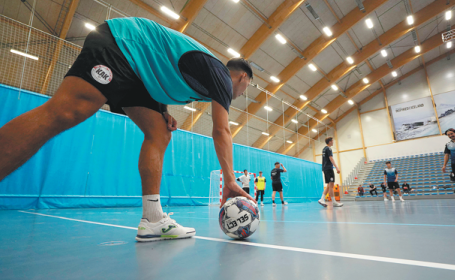
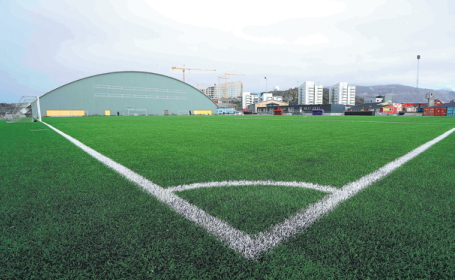
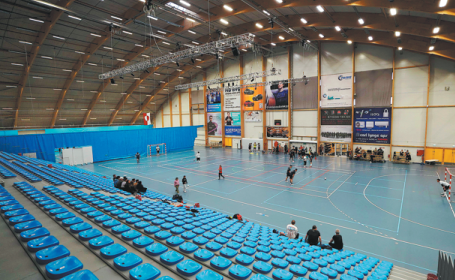
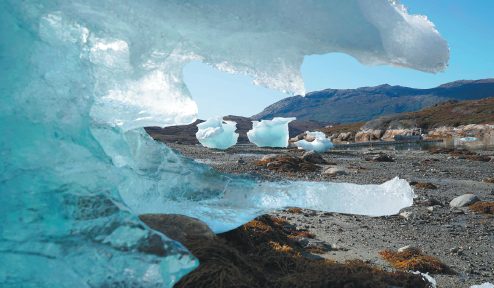
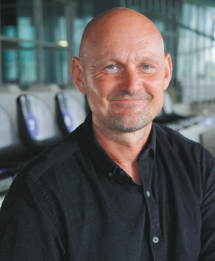
Today's Top News
- PBOC cuts rates on targeted monetary tools
- Legal tools essential for AI regulation
- China calls for dialogue on Iran situation
- Denmark rebuts Trump's Greenland security claims
- China, Canada vow to enhance bilateral ties
- Xi's speech at Central Urban Work Conference to be published




















